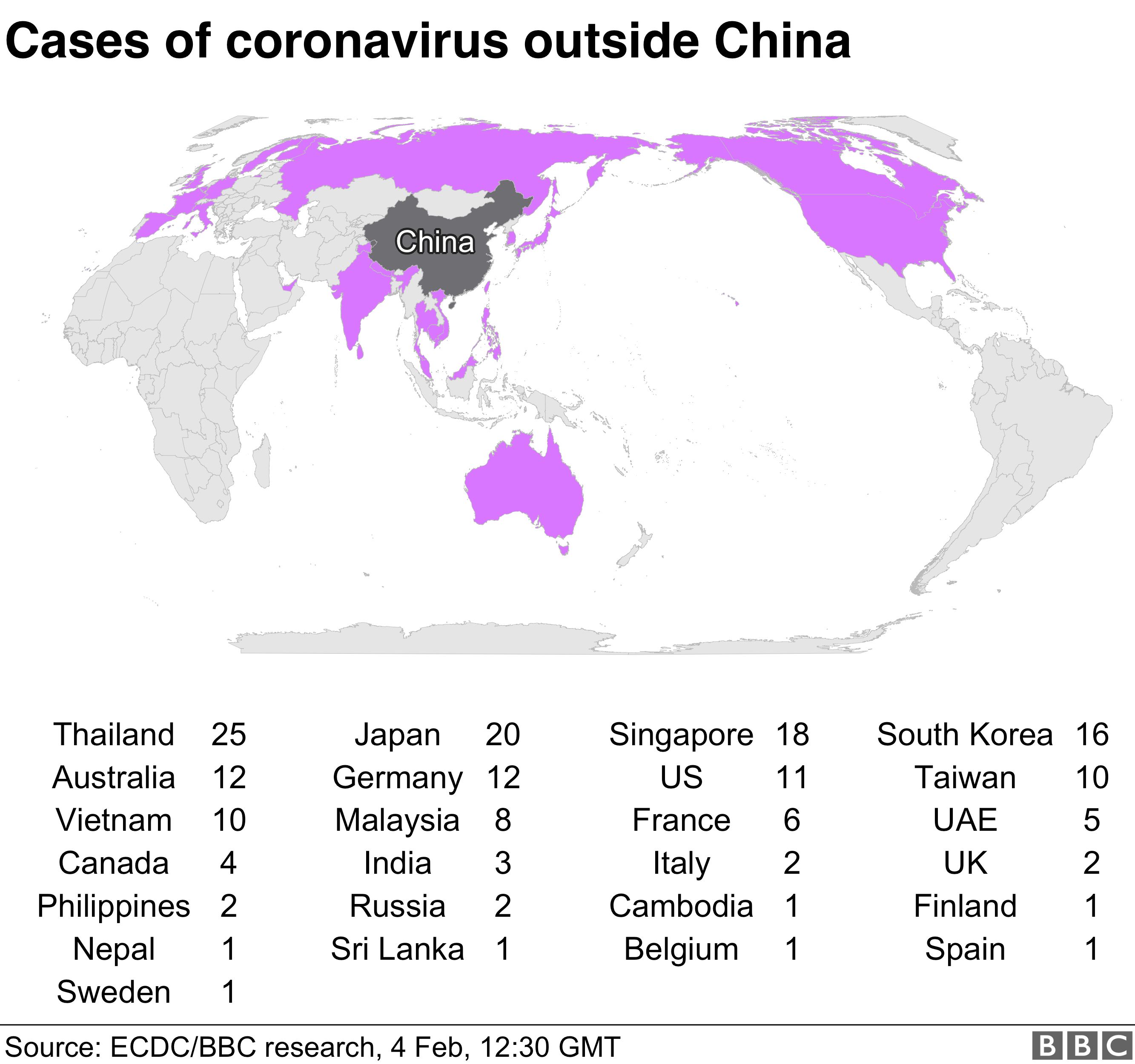Coronavirus outbreak not yet pandemic, World Health Organization says
especiales

The deadly coronavirus outbreak that has spread from China does not yet constitute a "pandemic", the World Health Organization (WHO) has said.
A pandemic is the worldwide spread of a new disease, according to the WHO.
At least 427 people have died with more than 20,000 confirmed cases around the world, most of them in China.
More than two dozen nations have reported cases but, so far, no confirmations have been made across Africa or Latin America.
On Tuesday, three more Asian countries - Singapore, Malaysia and Thailand - confirmed infections among citizens who had not travelled to China.
Officials say 425 people have died in China and one in Hong Kong. One death has also been confirmed in the Philippines.
- Could it become pandemic?
- 'Make coronavirus wildlife trade ban permanent'
- A visual guide to the outbreak
The new coronavirus causes severe acute respiratory infection and symptoms usually start with a fever, followed by a dry cough.
Among the main developments on Tuesday:
- Taiwan said that from Friday it would deny entry to all foreign nationals who have been to mainland China in the past 14 days
- Macau - a special administrative region of China and one of Asia's biggest gambling hubs - announced that it would temporarily close down all its casinos
- The UK government told all Britons in China to leave the country if they can. Many other nations are continuing to evacuate their citizens from affected areas of China
- Health officials are screening about 3,700 people on board a cruise ship off Japan after a passenger tested positive for the virus
On Monday, China's top leadership admitted "shortcomings and deficiencies" in the country's response to the outbreak, which is believed to have originated in Wuhan, Hubei province.
The rare admission came from the Politburo Standing Committee, which called for an improvement in China's emergency management system and ordered a "severe" crackdown on illegal wildlife markets, where the virus is thought to have emerged.
What did the WHO say?
Sylvie Briand, head of WHO's Global Infectious Hazard Preparedness division, acknowledged that there was rapid spread of transmission in Hubei but said the situation "currently" was not a pandemic.
She praised how Chinese authorities had responded to the outbreak, voicing hopes that the world could "get rid of this virus". She also stressed the importance of tackling unfounded rumours.
"When you deal with an epidemic, you rapidly see that in addition to the epidemic of diseases, we often have an epidemic of information. And this is what we call 'infodemic'," she said.
"And so we have realised over time that this infodemic could be really an obstacle for good response and hamper effective implementation of counter-measures."














Add new comment